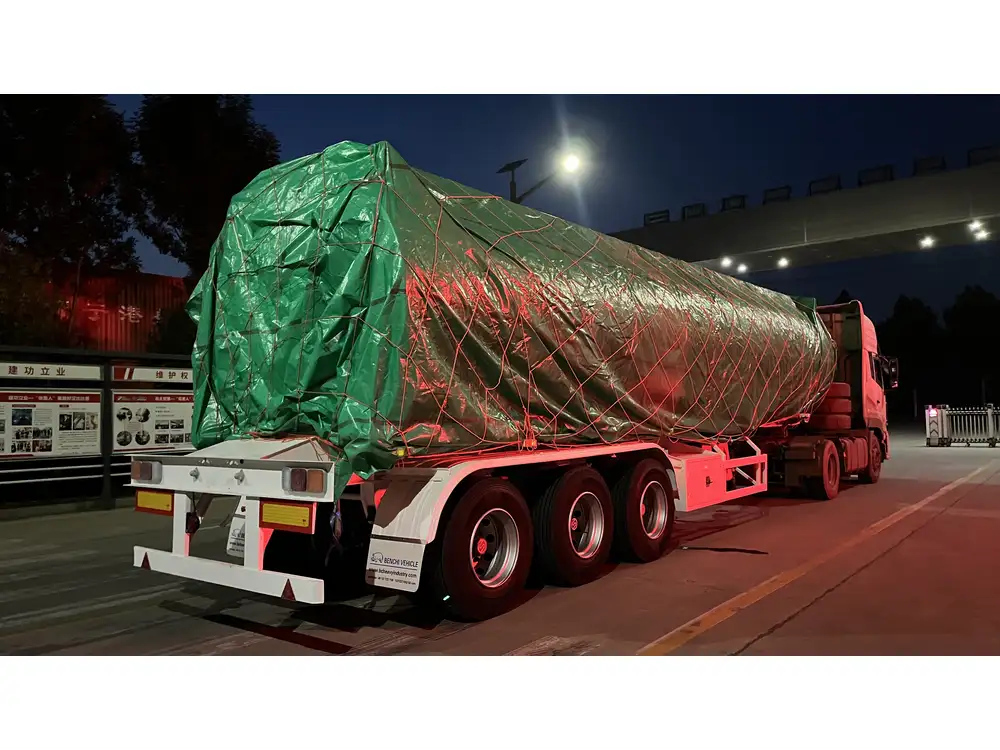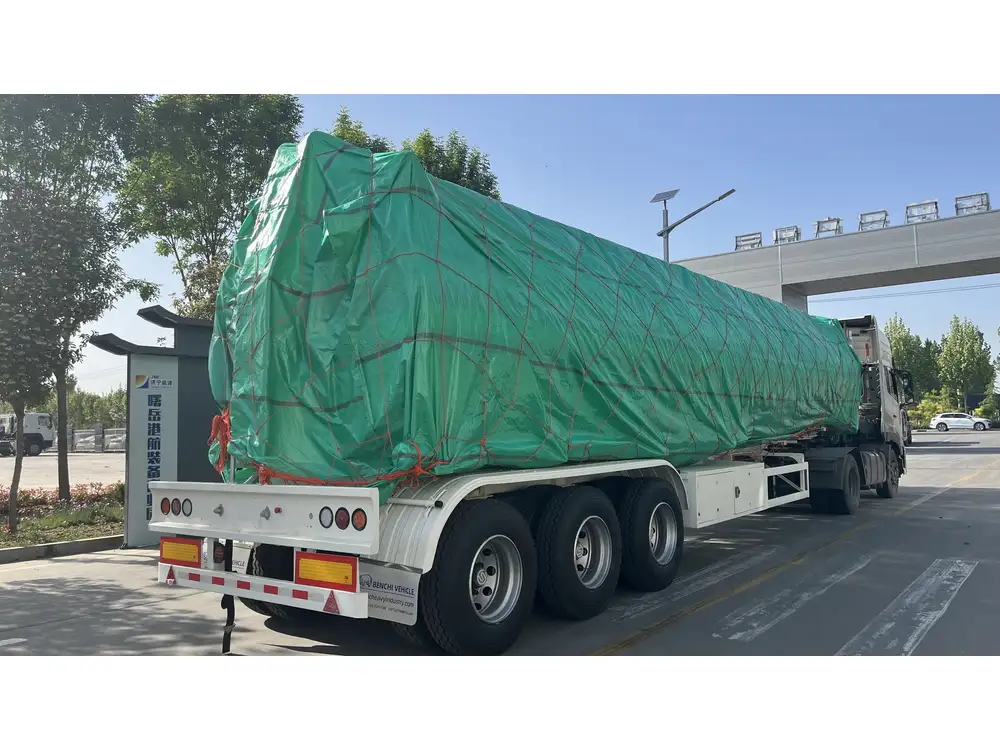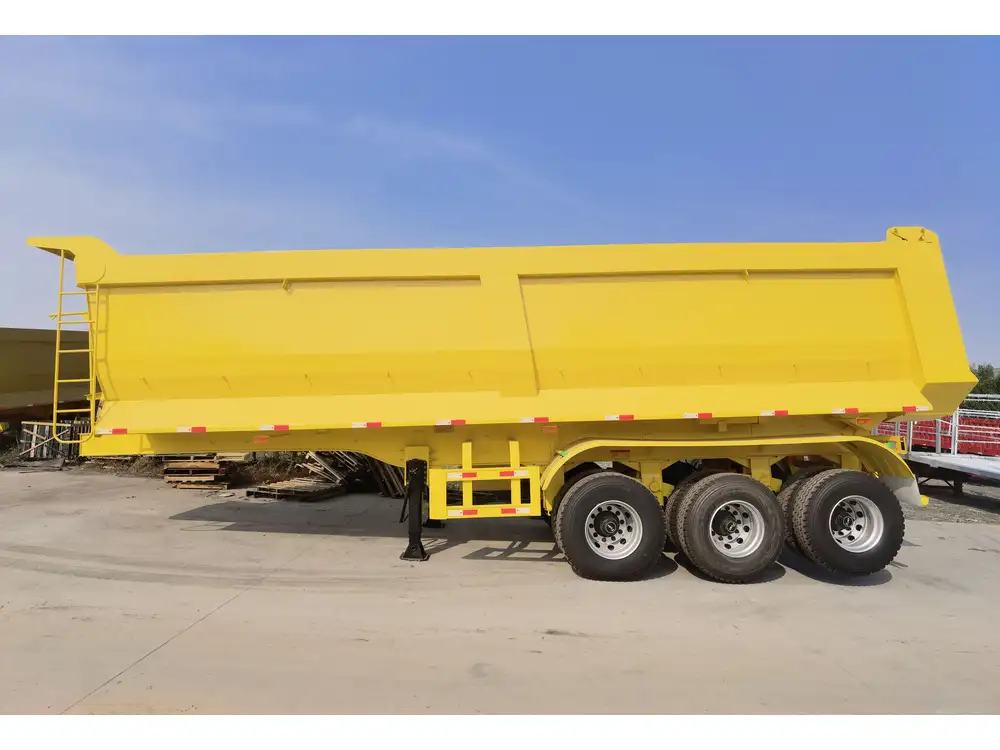Understanding Trailer Tankers: The Backbone of the Transportation Industry
In the tumultuous arena of logistics and distribution, the significance of trailer tankers cannot be overstated. As essential vehicles primarily designed for the transportation of liquids and gases, trailer tankers possess unique features that cater to various industries, from petroleum to food and agriculture. The modern trailer tanker is more than just a means of transport; it is an engineered marvel that must comply with stringent regulations while optimizing for safety and efficiency.
What is a Trailer Tanker?
A trailer tanker, often referred to as a tank trailer, is a specialized semi-trailer designed to transport bulk liquid cargo. These vehicles can carry a wide array of products, including:
- Petroleum Products: Gasoline, diesel, and lubricants.
- Chemicals: Hazardous and non-hazardous liquids such as acids and solvents.
- Food Products: Edible oils, juices, and milk.
- Water: Potable and non-potable water transport.
Equipped with intricate systems for loading and unloading, these trailers ensure that the transported material maintains its integrity during transit.

Types of Trailer Tankers: A Comprehensive Breakdown
When exploring the market for a trailer tanker for sale, it’s imperative to understand the different types available, each tailored for specific functions:
1. Petroleum Tank Trailers
- Design: Typically larger in volume, these tanks are built to withstand high pressures and are often insulated to maintain temperature.
- Materials: Manufactured from robust materials such as aluminum or stainless steel for durability and safety.
2. Chemical Tank Trailers
- Safety Features: Often equipped with safety valves, vapor recovery systems, and heated compartments to prevent chemical degradation.
- Versatility: Capable of carrying a range of chemicals, making them suitable for various industries.

3. Food-Grade Tank Trailers
- Compliance: Must adhere to stringent health and safety regulations, often featuring smooth interiors to prevent contamination.
- Material Standards: Commonly made from FDA-approved materials to ensure product safety.
4. Water Tank Trailers
- Construction: Typically simpler in design, these tankers are used in agricultural and municipal applications.
- Capacity Options: Available in various sizes to meet different transportation needs.
5. Vacuum Tank Trailers
- Functionality: Designed to suction liquids, sludges, and other materials, these trailers are used primarily in waste management.
- Special Features: Equipped with a vacuum pump system for effective loading.

Comparison Table: Features of Different Trailer Tankers
| Type of Tanker | Primary Use | Key Features | Regulatory Compliance |
|---|---|---|---|
| Petroleum Tank Trailer | Fuel transportation | Pressure-resistant, insulated | DOT, EPA guidelines |
| Chemical Tank Trailer | Chemical distribution | Safety valves, vapor recovery | OSHA, EPA regulations |
| Food-Grade Tank Trailer | Transporting food items | Smooth interiors, FDA-approved materials | FDA food safety standards |
| Water Tank Trailer | Potable/non-potable water | Simpler design, variable capacities | Local health regulations |
| Vacuum Tank Trailer | Waste management | Suction capabilities, vacuum pumps | Environmental regulations |
Key Features to Look for When Purchasing a Trailer Tanker
Acquiring a trailer tanker goes beyond a mere financial investment; it demands thorough contemplation of critical features and specifications. The decision-making process is multifaceted, encompassing safety, functionality, and regulatory compliance.
Safety Compliance
Safety is paramount in the transportation of liquids. Ensure the trailer meets all relevant safety regulations, such as:
- DOT Regulations: Compliance with the Department of Transportation standards.
- Material Certification: Verify that materials used are certified and tested for durability.

Tank Capacity and Dimensions
Understanding your cargo requirements will directly influence your choice. Trailer tankers come in various sizes:
- Standard Sizes: Often range from 3,000 to 11,000 gallons, but can be customized.
- Weight Limitations: Consider the Gross Vehicle Weight Rating (GVWR) to ensure it meets state and federal limits.
Construction Materials
The choice of materials influences the durability and safety of the trailer:
- Aluminum vs. Steel: Aluminum is lightweight and resistant to corrosion, while steel offers greater strength for heavy-duty applications.
- Insulation: For temperature-sensitive items, insulated tankers are necessary.
Loading and Unloading Mechanisms
Efficient loading and unloading systems are crucial. Look for:
- Pump Systems: Electric or hydraulic options can facilitate faster transfers.
- Manifold Systems: Ensures proper distribution of liquid during unloading.

Maintenance Requirements
Every piece of equipment requires maintenance. Inquire about:
- Ease of Maintenance: Consider models that allow easy access to key components.
- Spare Parts Availability: Check the availability of components for troubleshooting and repairs.
Evaluating Costs: Initial Investment vs. Long-Term Value
When scouting for a trailer tanker for sale, the price is often the most prominent consideration. However, assessing value extends beyond the initial expenditure; it involves evaluating long-term costs as well.
Purchase Costs
- New vs. Used: New trailers come with warranties and the latest technology, while used trailers can offer substantial savings but may require immediate repairs.
- Financing Options: Explore various financing avenues, including loans and leasing arrangements.

Operating Costs
- Fuel Efficiency: Assess the fuel economy, as it significantly impacts operational costs.
- Insurance: Ensure you budget for adequate insurance coverage to protect your investment.
Sale and Resale Value
- Depreciation Rates: Understand the expected depreciation to determine potential resale value down the line.
- Market Demand: Investigate current market trends to gauge resale opportunities.
The Buying Process: Step-by-Step
Embarking on the journey to purchase a trailer tanker involves several structured steps. Follow this guide to navigate the process seamlessly.

1. Identify Your Needs
Assess what materials you will need to transport. Consider:
- Types of Liquids: Different liquids require different tankers.
- Regularity of Use: Determine how often you will use the tanker for budgeting.
2. Conduct Market Research
- Reputable Manufacturers: Engage with leading manufacturers who possess a proven track record.
- User Reviews: Dive into user experiences to gauge the reliability and performance of different models.
3. Inspection and Test Drive
Always inspect the trailer and consider a test drive when possible. Look for:
- Structural Integrity: Check for rust, leaks, and general wear and tear.
- Functional Testing: Ensure all systems, including loading/unloading mechanisms, work effectively.

4. Negotiate the Price
Don’t shy away from negotiation. Tips include:
- Research Comparables: Have knowledge of market prices.
- Flexible Leverage: Use the interest of other buyers as leverage to negotiate a better deal.
5. Finalize Purchase and Insure Your Investment
Once a deal is reached, finalize your purchase and explore insurance options. This protects your asset against unforeseen circumstances.
Conclusion: The Road Ahead
Investing in a trailer tanker is a significant decision that demands careful consideration. By understanding the specifications, evaluating costs, and following a structured buying process, you ensure that your investment not only meets your operational needs but also stands the test of time.
Whether you’re a startup looking to enter the transportation market or an established business seeking to expand your logistics fleet, acquiring a trailer tanker can enhance your operational capabilities considerably. So, as you set out to find the perfect trailer tanker for sale, equip yourself with knowledge, remain vigilant in your research, and navigate the purchasing process with confidence.
For more information and to view our extensive range of trailer tankers available for sale, please visit our website or contact our sales team for personalized assistance. Your journey into the world of transporting liquids starts with the right trailer tanker – let us guide you to the right choice!



